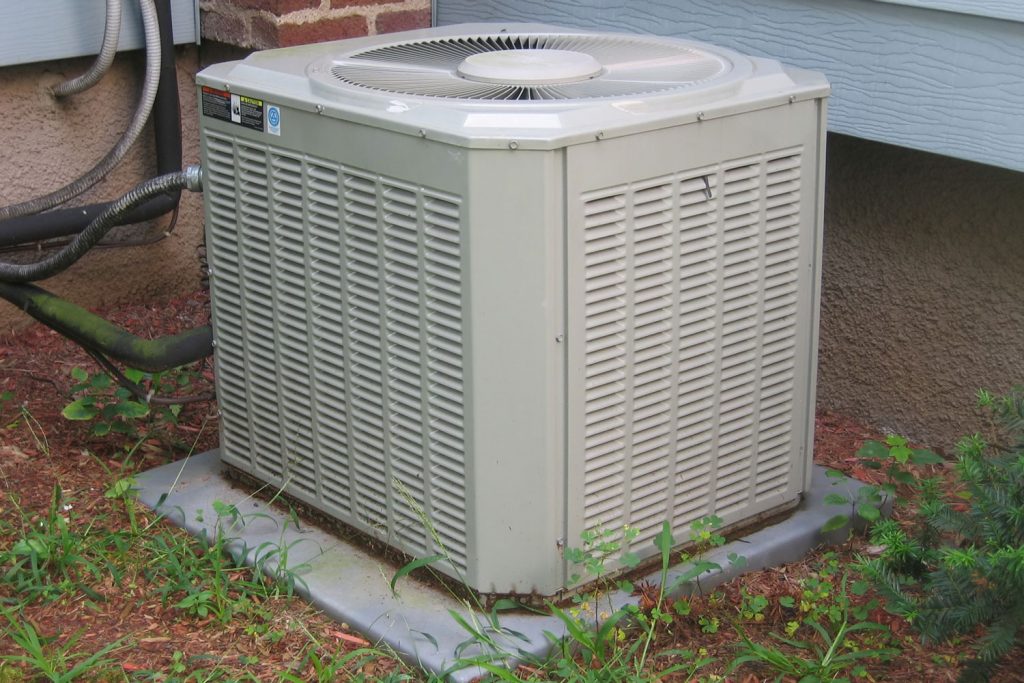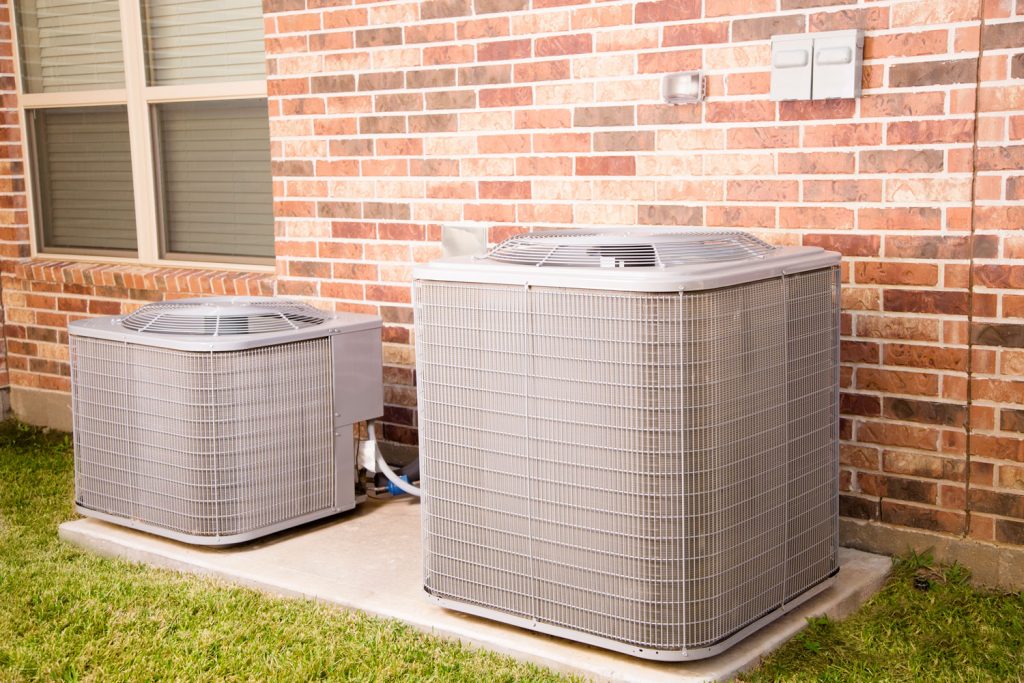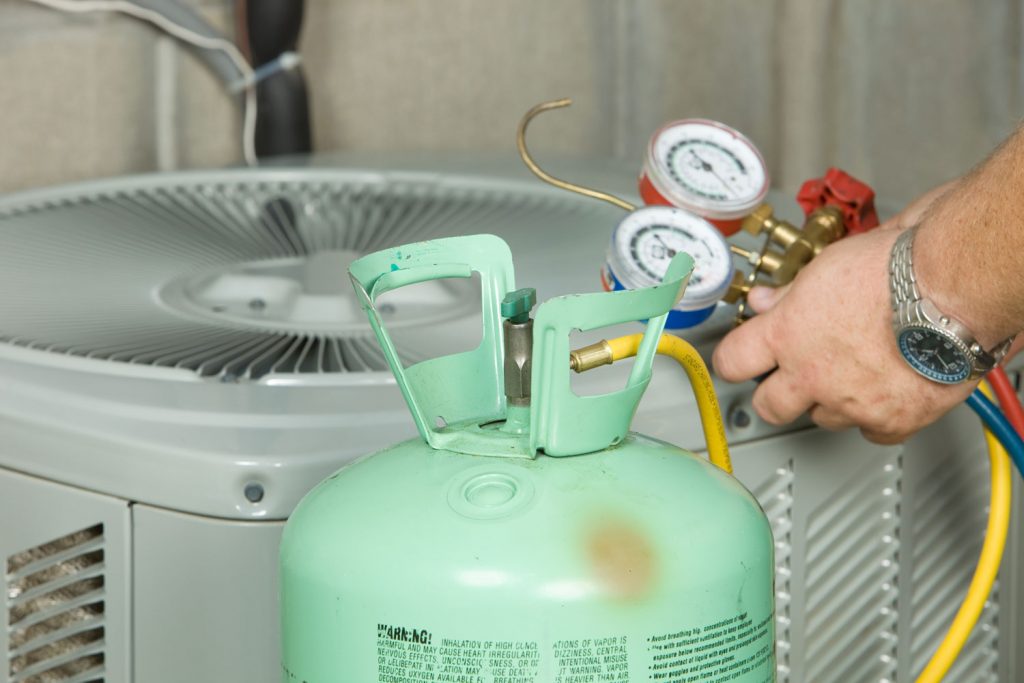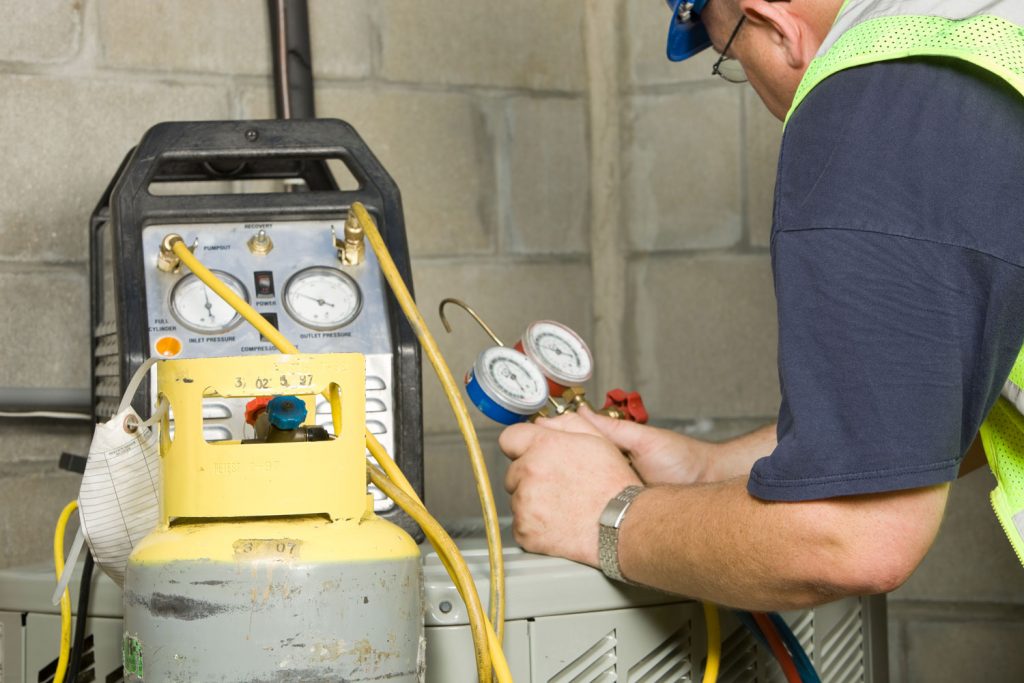When it's your first time owning a central air conditioner, many components may leave you scratching your head. After all, they're more powerful than your standard window ACs. One thing you might be wondering is whether central air conditioners use freon. And if so, you might also wonder if it needs to be recharged. For your convenience, we brought you the answer.
Freon is in the stages of being phased out for newer environmentally friendly refrigerants. However, depending on when you purchased your AC, your unit may still be using freon. As of January 2020, existing systems with freon will need to use recycled freon if it needs recharging.
Regarding recharging the refrigerant, you should never add more freon. It is only reasonable to add more if there is a leak in the system.
As mentioned, newer systems won't use freon to cool your home. So, in that respect, you might want to know what year central air conditioners stopped using it. Additionally, there are other aspects to know—like what to do if you own a system that still uses freon. If you'd like to learn this and more, keep reading ahead.
![Four air conditioning condensers outside a long span house, Do Central Air Conditioners Use Freon? [And Should You Recharge Them?]](https://hvacseer.com/wp-content/uploads/2021/10/Do-Central-Air-Conditioners-Use-Freon-And-Should-You-Recharge-Them-683x1024.png)
Phasing Out Freon
First, we need to address the elephant in the room. What did we mean when we mentioned that freon was phased out of air conditioning units. It isn't a recent event. Newer units in production started using Puron as a refrigerant instead.
This might cause concern to some central air conditioner owners that have never heard of this news. To get more specific, does that mean you'll need to replace your current AC with a new one? The answer depends on the condition of your AC and the availability of recycled freon.

As some users have clarified, your central air conditioner with freon should be usable until it is no longer capable of cooling your home. If there are leaks, you can still recharge it with more freon.
However, the cost of freon can be expensive. Additionally, recycled freon might not be readily available in your area.
Determining if Your Central AC Uses Freon

With that information in mind, how can one tell if their system uses freon? The easiest way to tell is by consulting a professional. They'll likely know the production date of your system.
With this method, you'll have a definite answer to what refrigerant your air conditioner uses.
However, if you can't get a hold of a professional, you'll have to remind yourself when you bought the system. As some suggest, systems produced before 2010 will likely use freon. From 2010 onwards, the air conditioners will most likely use Puron as the refrigerant.
Do You Need To Add Freon to Central Air?
Now we move on to the other half of the discussion. Should you recharge freon in your central air conditioner?
In theory, you should never have to add more freon into the system. The air conditioner doesn't use up the refrigerant in the sense that it loses it over time.
To get a better sense of how it works, let's go over the role of freon in an air conditioner.
- Using the compressor, the AC compresses cold freon gas. With a mix of oil and freon gas, the compressor is also lubricated.
- Once the gas is compressed, the freon becomes hot.
- At this point, freon moves through coils—which lowers the temperature of the gas. As a result, it converts into a liquid.
- In its liquid form, it flows through an expansion valve. During this process, it cools down until it evaporates.
- From here, in a low-pressure gas form, the freon travels through another set of coils.
- All in all, this procedure is how an AC absorbs heat and lowers the temperature.
As you can see, there's no room for it to leave the system. It works in an enclosed space where it continuously transforms from gas to liquid. However, this doesn't mean that there should never be an instance where you could add more refrigerant.
There is a situation where you might have to add more. In this case, you might also have to recharge freon regularly. So, let's go over when it's a possibility to add more freon.
How Often Do You Need To Add Freon to a Central Air Conditioning Unit?

The only instance when you should recharge the refrigerant in your air conditioner is when there's a leak.
Of course, to identify if you need a freon recharge, there must be something wrong with your air conditioner. The most glaring sign is warm air coming out the vents.
To give you a straightforward answer, you won't have to recharge freon often. If a technician finds a leak, they should refill it once. From here, your central AC should work correctly.
But first, you must be sure it needs a freon recharge. So, you'll have to check the system from top to bottom to identify it isn't something else causing the warm air to come out the vents.
Meaning, you'll need to check the air filter, the thermostat, and look at the AC unit itself to identify the cause.
Ideally, a technician should identify what could be causing the problem. Still, in some cases, they might diagnose another problem while missing the leak.
As some suggest, dirty air filters, frozen evaporator coils, and other problems may give the technician incorrect refrigerant readings.
Leaks
Once they've identified a leak, you should have a rough idea of why a technician is adding more freon. In other words, they've told you where the leak was and if they've fixed it.
If they haven't stopped the leak at the source, the technician might need to add more refrigerant the next time your AC starts blowing warm air again.
In the best case, they will find the source of the leak, drain your system, and recharge it with more freon.
However, depending on the condition of your central air conditioner, it might be a better option to replace it with a newer unit. The reason is that freon is quite expensive to refill.
How Much Does It Cost To Recharge Home AC With Freon?
Adding freon to your system can cost $100-$350. If you own a large air conditioning unit, it can cost upwards of $600. This expense is without accounting for labor costs. So, it's up to you whether to replace the system or go for a recharge.
In addition to recharging freon, you'll also have to pay an extra $50-$150 to dispose of the old freon in your system.
Refrigerants aren't simple liquids that can be disposed of in a typical way. It is illegal to dispose of freon improperly. Only certified personnel will know what to do with it.
Is Recharging Your AC the Same As Adding Freon?
Recharging your AC and adding freon is the same thing. Ideally, you'll never have to recharge the air conditioner with more freon. However, in case of a leak, you will need to add more.
As mentioned, if you require multiple recharges, a professional should identify where the leak is occurring. From there, you will need to decide on recharging the AC with more freon or purchasing a new unit.
Can I Recharge Home AC Myself?

After seeing the cost of recharging freon, you might get the idea of saving money by doing the job yourself. Is it possible for an average person to refill an AC with refrigerant? As some suggest, it isn't advisable to do it by yourself.
Freon is a regulated gas that must be handled by a licensed professional. All activity with air conditioning freon must be recorded and reported to the EPA. This procedure allows them to track how it's being handled.
In the past, it was possible to do the project yourself. However, you will have to check with local laws to determine if this is still feasible.
Refrigerants are toxic chemicals that need heavy precautions to handle. If you don't know what you're doing, you could expose yourself to multiple health hazards.
Risks of Handling Refrigerant
As some suggest, if you don't use the proper equipment, refrigerants like freon can cause severe irritation and frostbite with the area that it comes in contact with.
In other cases, you might also have symptoms of asphyxiation, increased pulse rate, and loss of coordination.
Regardless, it's best to leave the job for a licensed professional. Licensed technicians will know how to handle the refrigerant. In fact, it's a requirement for technicians to have the proper license to deal with them.
You might find online listings of freon. But, it might be illegal for you to purchase and use the refrigerant. In this case, consider the possibility of replacing the air conditioning unit.
Final Takeaway
As time passes, the standards for some appliances might change. As we discussed, older central air conditioning units use freon while others have moved on to better refrigerants.
With the details above, it's up to you to decide if you should recharge your existing unit or get a new one! We hope you found the information above helpful.
Before you go, do you have other air conditioning concerns? Is your AC freezing up? If you're wondering if you can pour hot water on it, you can find out more in our post here.
Does pouring hot water sound too extreme? You can also wait until it defrosts. If you're wondering how long this would take, you can find out more in our post here. Until next time!
